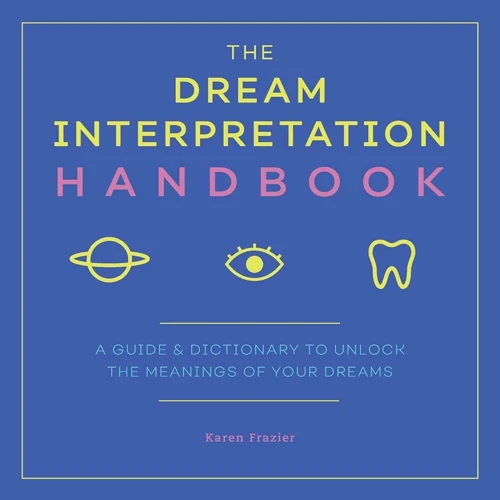Have you ever had a dream that seemed so vivid and real, as if it was trying to tell you something important? Maybe you woke up with a lingering feeling that the dream held a deeper meaning or a glimpse into the future. These mysterious dreams, known as premonition dreams, have fascinated people for centuries. The intriguing aspect of premonition dreams lies in their connection to intuition – that inner voice that guides us and provides insights beyond logical reasoning. In this article, we will delve into the role of intuition in premonition dreams, exploring the science behind intuition, understanding the types of premonition dreams, and discussing how to interpret and act upon them. So, join us on this journey of unraveling the mysteries of the subconscious and the power of intuition in the world of dreams.
Understanding Premonition Dreams

Understanding Premonition Dreams involves exploring the definition of these special dreams and understanding the different types they can take. Premonition dreams are dreams that seem to foreshadow future events or provide insights that go beyond our ordinary senses. They often leave us with a sense of clarity or unease upon waking, as if we have been given a glimpse into the unknown. These dreams can manifest in various forms, each carrying its own significance. One type of premonition dream is the literal premonition, where the dream accurately predicts a future event or situation. Another type is the symbolic premonition, where the dream uses symbols and metaphors to convey intuitive insights. Lastly, there are intuitive premonition dreams that provide a general sense or feeling about something that may happen. By understanding these different types of premonition dreams, we can begin to unravel the messages they hold and tap into the power of our intuition. To further deepen your understanding of premonition dreams, you can explore the signs and symbols commonly associated with them, the abilities, tips, and techniques to enhance your premonition dream experiences, and how to distinguish between premonition dreams and ordinary dreams.
Definition of Premonition Dreams
The definition of premonition dreams lies in their unique nature as dreams that provide glimpses into the future or offer intuitive insights beyond our ordinary senses. They are characterized by their ability to convey knowledge or awareness of events that have not yet occurred. Premonition dreams often leave a lasting impact on the dreamer, evoking strong emotions or a sense of urgency upon waking. These dreams can occur spontaneously or be triggered by specific circumstances or emotions. While some premonition dreams may have a literal representation of future events, others may use symbolism and metaphors to convey their messages. By recognizing the signs and symbols commonly associated with premonition dreams, we can deepen our understanding and interpretation of these enigmatic experiences. Additionally, it is essential to differentiate premonition dreams from ordinary dreams, as they serve different purposes and carry distinct qualities. To explore more about the signs and symbols in premonition dreams, you can refer to our detailed guide on premonition dream signs and symbols.
Types of Premonition Dreams
Types of Premonition Dreams can manifest in different ways, each with its own unique characteristics and significance. Literal Premonition Dreams are perhaps the most recognizable form, as they directly and accurately predict future events. These dreams often provide specific details such as dates, locations, or names, making the connection to reality unmistakable. Another type is the Symbolic Premonition Dream, where the dream’s messages are conveyed through symbols and metaphors. These symbols may require interpretation and understanding of their deeper meanings. Symbolic premonition dreams can be rich in imagery, allowing the subconscious mind to communicate insights and warnings. Lastly, we have Intuitive Premonition Dreams. These dreams provide a general sense or feeling about something that may happen in the future. While they may lack explicit details, they rely on the intuitive faculty to perceive and interpret the underlying message. Developing an understanding of these different types of premonition dreams can help us recognize and decipher the information they offer. To further enhance your exploration of premonition dreams, you can also delve into techniques, tips, and abilities associated with experiencing and harnessing the power of premonition dreams. Additionally, understanding how to differentiate between premonition dreams and ordinary dreams can provide clarity and guidance in your dream analysis and interpretation journey.
The Science Behind Intuition

The Science Behind Intuition seeks to uncover the fascinating workings of our innate intuitive abilities. Intuition is often described as a gut feeling, an inner knowing, or a sixth sense that goes beyond logical reasoning. It is a deep understanding that arises without conscious thought or effort. Scientists have been exploring the concept of intuition and have made several intriguing discoveries. Intuition involves rapid and subconscious processing of information gathered from our surroundings, experiences, and memory. It relies on pattern recognition and the ability to make connections between seemingly unrelated pieces of information. The brain’s intuitive processing occurs primarily in the limbic system, which is responsible for emotions and survival instincts. This explains why intuition is often associated with strong emotions or feelings. Researchers suggest that intuition is a result of our brain’s ability to quickly analyze vast amounts of data and provide us with insights that might not be immediately apparent. By understanding the science behind intuition, we can begin to appreciate and harness its power in various aspects of our lives, including the realm of premonition dreams. To explore more about how intuition plays a role in premonition dreams, you can delve into tips and techniques to enhance your intuitive abilities and learn how to distinguish between premonition dreams and ordinary dreams.
What is Intuition?
Intuition is a fascinating and powerful aspect of human cognition that plays a significant role in premonition dreams. Intuition can be described as a deep, instinctual knowing or comprehension without the need for conscious reasoning. It is often referred to as our “gut feeling” or “inner voice” that guides us in making decisions and perceiving the world around us. While intuition is difficult to define precisely, it is believed to arise from a combination of our past experiences, implicit knowledge, and unconscious processing of information. It operates beyond the realm of logic and rationality, tapping into a deeper level of understanding. Intuition can manifest as subtle inclinations, sudden insights, or a strong sense of conviction. It is a direct connection to our subconscious mind, which has access to vast amounts of information that may not be immediately accessible to our conscious awareness. Developing and honing our intuitive abilities can greatly enhance our experiences with premonition dreams. To delve deeper into the topic, you can explore the tips, techniques, and abilities associated with enhancing intuition in premonition dreams. Additionally, understanding the difference between premonition dreams and ordinary dreams can provide valuable insights into the role of intuition in deciphering these powerful experiences.
How Does Intuition Work?
Understanding how intuition works can shed light on the connection between intuition and premonition dreams. Intuition is often described as our inner knowing or gut feeling that guides us without logical reasoning. It is a subconscious process that taps into our past experiences, emotions, and knowledge, allowing us to make quick and instinctive decisions. Intuition works through a combination of factors, including pattern recognition, emotional perception, and subconscious processing. Our brains are constantly processing vast amounts of information, even when we are not consciously aware of it. This information is then synthesized and analyzed by our subconscious mind, which can lead to intuitive insights and hunches about a situation. Intuition is also influenced by our emotions, as certain feelings or sensations can serve as signals or warnings. In the context of premonition dreams, intuition can play a key role in both receiving and interpreting the messages embedded in our dreams. By cultivating our intuition through practices such as meditation, mindfulness, and journaling, we can enhance our ability to tap into the wisdom of our dreams. For more tips and techniques on developing your premonition dream abilities, you can explore our previous article on /premonition-dream-abilities-tips-techniques/. Additionally, understanding the difference between premonition dreams and ordinary dreams can help us decipher the intuitive insights they offer.
The Connection Between Intuition and Premonition Dreams

The Connection Between Intuition and Premonition Dreams lies in the interplay between our inner guidance and the receptive state of mind during dreaming. Intuition is often described as our innate knowing or gut feeling, providing insights and information beyond our conscious awareness. It serves as an inner guide that can help us navigate the complexities of life. Similarly, premonition dreams tap into this intuitive realm, offering glimpses of future events or hidden aspects of reality. During sleep, our minds are in a receptive state, open to receiving information and messages from our subconscious and the collective consciousness. This state allows intuition to flow freely, unencumbered by the distractions of waking life. Premonition dreams may arise from the subconscious processing of information, piecing together subtle cues and patterns that our conscious mind may overlook. As we explore the connection between intuition and premonition dreams, it becomes clear that our dreams serve as a powerful channel for our intuitive wisdom to manifest. To further understand this connection, it is helpful to differentiate premonition dreams from ordinary dreams and explore the distinct qualities that set them apart.
Intuition as an Inner Guide
Intuition serves as an inner guide in our lives, and it plays a crucial role in the realm of premonition dreams. Intuition is often described as our innate knowing, a subtle sense that provides insights beyond our conscious understanding. It is that gut feeling, that instinctive hunch that guides us in decision-making and helps us navigate through life’s uncertainties. In the context of premonition dreams, intuition acts as a compass, pointing us towards hidden truths and future possibilities. It taps into our subconscious mind, where information and impressions are processed on a deeper level. During premonition dreams, our intuition becomes amplified, allowing us to receive messages or glimpses of what is yet to come. It is through this intuitive lens that we can decipher the symbolism and meanings embedded within our dreams. By developing and trusting our intuition as an inner guide, we enhance our ability to interpret and act upon the messages conveyed in our premonition dreams. To gain a better understanding of how intuition differs from ordinary dreams and how to recognize intuition in our dreams, you can explore the article that highlights the difference between premonition dreams and ordinary dreams.
Receptive State of Mind during Dreaming
During dreaming, our mind enters a receptive state that is conducive to receiving intuitive information. This state of mind, often referred to as a receptive state, is characterized by a relaxed and open mindset that is receptive to messages beyond the realm of everyday consciousness. When we dream, our logical thinking and analytical processes take a backseat, allowing our subconscious mind to take the spotlight. In this receptive state, we become more attuned to our intuition and the subtle signals it sends us. It is during this time that premonition dreams can occur, as our intuitive senses are heightened and more accessible. This receptive state of mind during dreaming is what allows us to tap into deeper levels of awareness and receive insights that may not be readily available in our waking state. By understanding the difference between premonition dreams and ordinary dreams, we can further analyze the characteristics of this receptive state and begin to distinguish the intuitive messages that come through in our nightly visions. For more information on identifying and differentiating premonition dreams from ordinary dreams, you can refer to our article: “Premonition Dreams vs Ordinary Dreams: Telling the Difference”.
Subconscious Processing of Information
Subconscious processing of information plays a crucial role in the phenomenon of premonition dreams. Our subconscious mind absorbs a vast amount of information from our surroundings, observations, and experiences on a daily basis, even when we are not consciously aware of it. This information is then processed and stored in our subconscious, forming a vast reservoir of knowledge and insights that go beyond our conscious understanding. Premonition dreams can be seen as the gateway through which this subconscious information is accessed and communicated to us. During dreams, our minds are free from the constraints of logic and reason, allowing the subconscious to surface and present information in symbolic or intuitive forms. It is believed that our dreams draw upon this wealth of accumulated information, combining it with our deep-seated emotions and desires to construct narratives that hold meaning and potential foresight. This subconscious processing of information explains why premonition dreams can provide glimpses into the future or insights that go beyond our conscious awareness. By tapping into this subconscious realm, we can gain valuable insights and guidance. If you’re curious about how to differentiate premonition dreams from ordinary dreams, you can explore the article on telling the difference between premonition dreams and ordinary dreams.
Interpreting Premonition Dreams

Interpreting premonition dreams is a crucial step in unlocking their hidden meanings and insights. To effectively interpret these dreams, it’s important to recognize symbolism and patterns within the dream. Symbols in dreams can hold personal meanings, and it’s essential to consider their context and how they resonate with you personally. By keeping a dream journal, you can track recurring symbols and patterns, allowing you to uncover potential messages and themes that may be connected to future events. Trusting your intuition is another crucial aspect of interpreting premonition dreams. Your intuition acts as a guide, offering insights beyond logic and reasoning. Pay attention to your gut feelings and instincts when deciphering the meaning behind your dreams. Validating premonition dreams in wakefulness can help solidify their significance. This can involve keeping a record of your dreams, noting down any related events or experiences that occur. By comparing your dream experiences to real-life occurrences, you can determine the accuracy and validity of your premonition dreams. Remember, interpreting premonition dreams is a personal journey that relies on your unique intuition and insights. Trust yourself and embrace the mystery and wisdom that lies within your dreams.
Recognizing Symbolism and Patterns
Recognizing symbolism and patterns is a crucial aspect of interpreting premonition dreams. In these dreams, our subconscious mind often communicates through symbolic imagery, which requires us to delve deeper into the hidden meanings. Symbolism in premonition dreams can be personal or universal, and it’s important to consider our own associations and emotions attached to certain symbols. Keeping a dream journal can be immensely helpful in identifying recurring symbols and patterns, as it allows us to analyze our dreams over time. By examining these patterns, we may start to notice connections between certain symbols and the events or situations that follow in waking life. For example, dreaming about water could symbolize emotions, while dreaming about flying could represent a sense of freedom or empowerment. Additionally, paying attention to the feelings and emotions experienced in the dream can provide further insights into the symbolism. It’s essential to remember that symbols can have subjective meanings, so trusting our intuition is key in deciphering the messages encoded in our dreams.
Trusting Your Intuition for Interpretation
When it comes to interpreting premonition dreams, trusting your intuition is key. Intuition is your inner guide, a deep knowing that goes beyond logical reasoning. It is that gut feeling, that instinctive understanding of something without the need for concrete evidence. When it comes to interpreting premonition dreams, your intuition can act as a reliable compass. Allow yourself to tap into your intuition by quieting the chatter of your mind and embracing a receptive state of mind. This means being open to the symbols, signs, and messages that emerge in your dreams. Trust that your intuition will guide you towards the correct interpretation, even if it seems abstract or unclear at first. Keep an open mind and allow your intuition to weave together the threads of meaning within your dream. Remember, intuition is a powerful tool that can provide deep insights and understanding. By trusting your intuition, you can unlock the hidden messages and significance within your premonition dreams.
Validating Premonition Dreams in Wakefulness
Validating Premonition Dreams in wakefulness can be a crucial step in understanding and interpreting their significance. While premonition dreams provide glimpses into the future or intuitive insights, it is important to validate them in our waking lives. One way to validate premonition dreams is to keep a dream journal. By recording and documenting our dreams, we can compare them to future events and see if there are any correlations or similarities. This process also helps us become more aware of recurrent themes, symbols, and patterns in our dreams, allowing us to better interpret their meanings. Another way to validate premonition dreams is to trust our gut feelings and intuition. If a dream leaves us with a strong emotional response or a sense of certainty, it is worth paying attention to. Intuition acts as an inner guide and can help us validate the authenticity of our premonition dreams. Additionally, seeking external validation from others who may have had similar experiences can provide reassurance and a broader perspective. Ultimately, validating premonition dreams in wakefulness involves taking a proactive approach to explore the connections between our dreams and real-life events, trust our intuition, and seek validation from both within and outside ourselves.
Acting on Premonition Dreams
Acting on Premonition Dreams involves listening to our inner voice and taking precautionary measures based on the insights we receive. When we have a premonition dream, it is important to pay attention to the intuitive messages it conveys. Our intuition serves as a guiding force, offering us valuable information that we may not be able to rationalize. By listening to our inner voice, we can gain clarity on the actions we should take in our waking lives. Whether it’s making a decision, pursuing an opportunity, or avoiding a potential danger, our intuition can provide us with valuable guidance. Taking precautionary measures based on our premonition dreams can help us navigate uncertain situations and protect ourselves from potential harm. It’s important to trust our instincts and take the necessary steps to ensure our well-being. This may involve seeking advice from trusted individuals, gathering more information, or altering our course of action. By embracing the wisdom of our premonition dreams and actively acting upon them, we can harness the power of our intuition and pave the way for a more guided and fulfilling life journey.
Listening to Your Inner Voice
Listening to your inner voice is a crucial aspect of acting on premonition dreams. Your intuition acts as a guide, offering insights that may not be immediately apparent on a conscious level. When it comes to premonition dreams, your inner voice becomes even more important as it may provide valuable guidance and warnings. It is essential to pay attention to your gut feelings and instincts that arise from these dreams. Trusting your inner voice means acknowledging and honoring the intuitive messages that come through your dreams. This may involve actively tuning in to your intuition during waking hours and making a conscious effort to listen to the whispers of your inner voice. By cultivating a deeper connection with your intuition and embracing it as a reliable source of guidance, you empower yourself to make informed decisions and take appropriate actions based on the insights received in premonition dreams. So, the next time you have a premonition dream, remember to listen closely to your inner voice and allow it to guide you on your path.
Taking Precautionary Measures
When it comes to premonition dreams, taking precautionary measures can be a wise approach. While it’s important to remember that not all premonition dreams are literal predictions of the future, there are instances where they can offer valuable insights that may help us avoid potential pitfalls or challenges. One way to approach these dreams is to listen to your inner voice, the intuition that guided you during the dream. Pay attention to any strong feelings or emotions that arose during the dream and trust your gut instinct. If your dream indicated a potential danger, it may be wise to take preventive action or make necessary preparations. However, it is crucial to strike a balance between heeding the message of the dream and not becoming excessively paranoid or fearful. Use discernment and evaluate the practicality of the measures you take based on the information provided by your dream. Remember that premonition dreams are not infallible, but they can serve as valuable guides in navigating life’s uncertainties. By being mindful and proactive, you can use the insights gained from your premonition dreams to make informed decisions and create a safer and more fulfilling path forward.
Conclusion
In conclusion, the role of intuition in premonition dreams is a captivating phenomenon that bridges the subconscious and conscious mind. Premonition dreams offer a unique glimpse into potential future events or provide intuitive insights beyond our logical reasoning. By understanding premonition dreams and the connection they have with intuition, we can unlock a deeper understanding of ourselves and the world around us. Recognizing symbolism and patterns in premonition dreams, trusting our intuition for interpretation, and validating these dreams in wakefulness are all crucial steps in harnessing the power of premonition dreams. Actively listening to our inner voice and taking precautionary measures based on the messages we receive in these dreams can lead to a more informed and conscious existence. So, pay attention to your dreams, embrace your intuition, and let your premonition dreams guide you on an extraordinary journey of self-discovery and awareness.
Frequently Asked Questions
What is the difference between a premonition dream and a regular dream?
A premonition dream is a type of dream that seems to provide insights or information about the future, whereas a regular dream typically reflects the experiences, thoughts, and emotions of the dreamer without any predictive elements.
Can anyone have premonition dreams?
Yes, anyone has the potential to have premonition dreams. We all possess intuitive abilities, but some individuals may be more naturally attuned to recognizing and interpreting these dreams.
How can I distinguish a premonition dream from a normal dream?
One way to distinguish a premonition dream is by the strong emotional impact it has upon waking. Premonition dreams often leave a lasting impression and a sense of significance or urgency compared to regular dreams.
Can premonition dreams be interpreted in a literal sense?
Yes, premonition dreams can be interpreted literally if they accurately depict a future event. However, it’s important to also consider the symbolic elements and metaphors that may be present in the dream.
Are premonition dreams always accurate?
Premonition dreams can vary in accuracy. While some may accurately depict future events, others may provide more general insights or intuitive feelings about potential outcomes.
Is it possible to enhance or improve my ability to have premonition dreams?
Yes, there are techniques to enhance your ability to have premonition dreams. Keeping a dream journal, creating a relaxing bedtime routine, and practicing meditation or visualization exercises can all help in cultivating a receptive state of mind for intuitive dreams.
Can premonition dreams change the course of future events?
Premonition dreams can provide valuable information that may influence our actions and decisions, potentially altering the course of future events. However, it’s important to remember that the future is not set in stone and our choices and actions also play a role.
How can I validate the accuracy of a premonition dream?
One way to validate the accuracy of a premonition dream is to take note of any specific details or symbols in the dream and observe if they manifest in your waking life. Additionally, journaling your dreams and reflecting on them over time can help you track their accuracy.
Should I trust my intuition when interpreting a premonition dream?
Trusting your intuition is key when interpreting a premonition dream. Your intuition can help guide you towards understanding the underlying messages and symbolism within the dream.
Is it advisable to take action based on a premonition dream?
Taking action based on a premonition dream depends on the individual and the specific dream. If the dream feels particularly impactful and urgent, it may be wise to take precautionary measures or seek further guidance. Trusting your instincts and consulting with trusted individuals can also help in making informed decisions.








